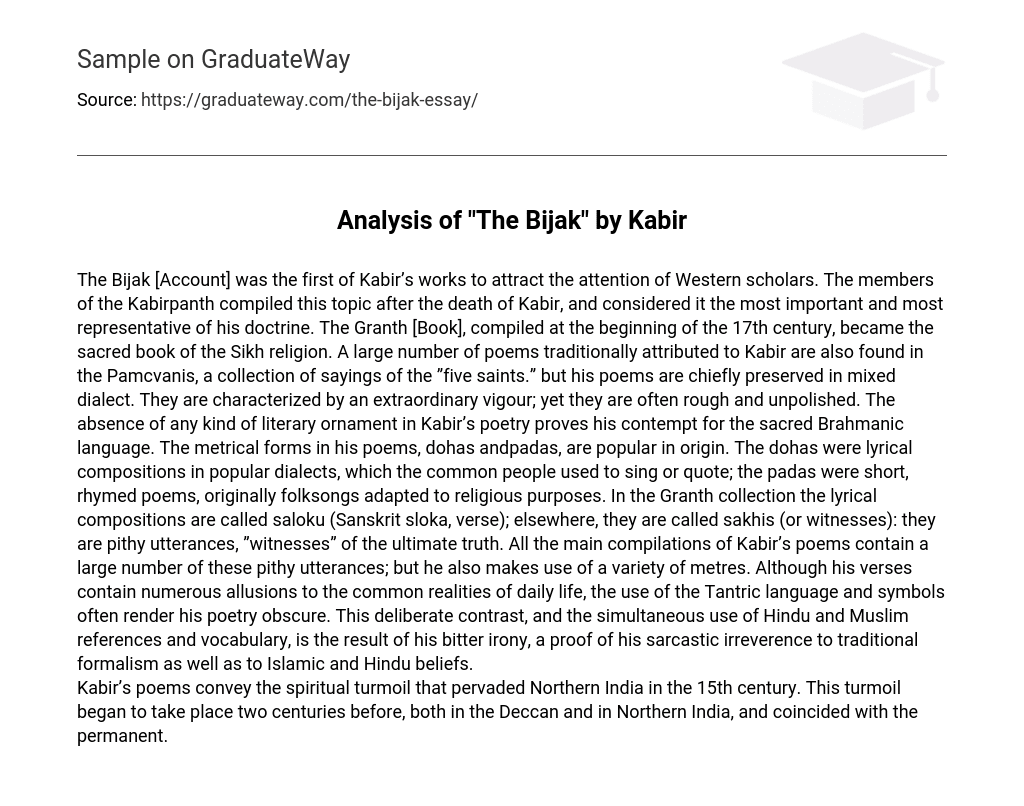The Bijak [Account] was the first of Kabir’s works to attract the attention of Western scholars. The members of the Kabirpanth compiled this topic after the death of Kabir, and considered it the most important and most representative of his doctrine. The Granth [Book], compiled at the beginning of the 17th century, became the sacred book of the Sikh religion. A large number of poems traditionally attributed to Kabir are also found in the Pamcvanis, a collection of sayings of the ”five saints.” but his poems are chiefly preserved in mixed dialect.
They are characterized by an extraordinary vigour; yet they are often rough and unpolished. The absence of any kind of literary ornament in Kabir’s poetry proves his contempt for the sacred Brahmanic language. The metrical forms in his poems, dohas andpadas, are popular in origin. The dohas were lyrical compositions in popular dialects, which the common people used to sing or quote; the padas were short, rhymed poems, originally folksongs adapted to religious purposes. In the Granth collection the lyrical compositions are called saloku (Sanskrit sloka, verse); elsewhere, they are called sakhis (or witnesses): they are pithy utterances, ”witnesses” of the ultimate truth. All the main compilations of Kabir’s poems contain a large number of these pithy utterances; but he also makes use of a variety of metres.
Although his verses contain numerous allusions to the common realities of daily life, the use of the Tantric language and symbols often render his poetry obscure. This deliberate contrast, and the simultaneous use of Hindu and Muslim references and vocabulary, is the result of his bitter irony, a proof of his sarcastic irreverence to traditional formalism as well as to Islamic and Hindu beliefs. Kabir’s poems convey the spiritual turmoil that pervaded Northern India in the 15th century. This turmoil began to take place two centuries before, both in the Deccan and in Northern India, and coincided with the permanent.





